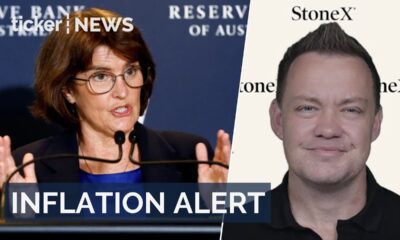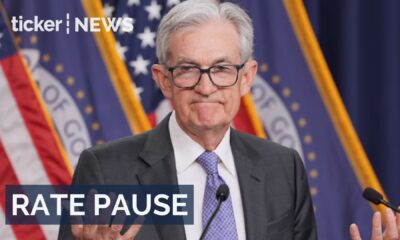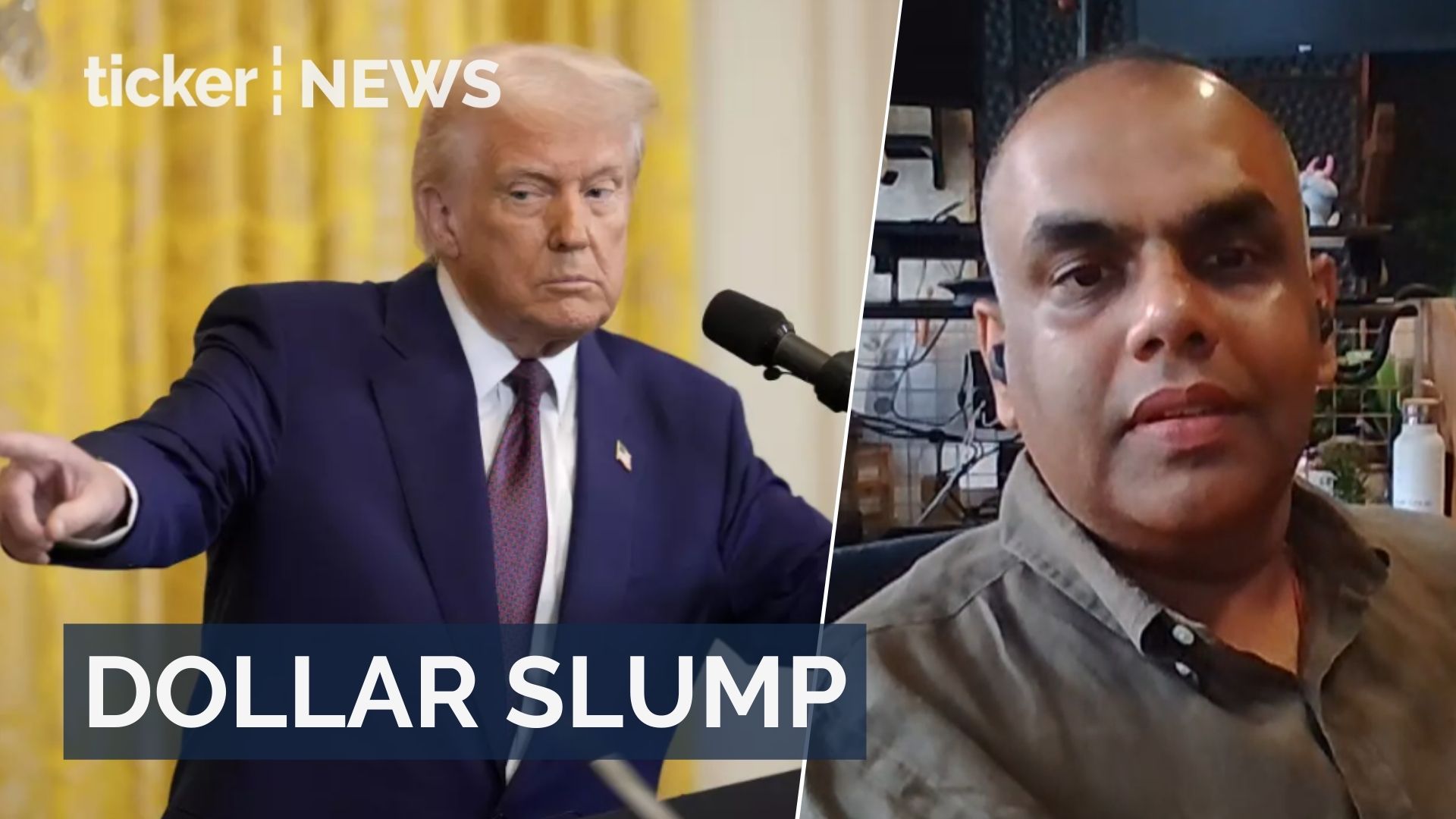Money
The global economy is teetering, so what happens next?
Money
U.S. dollar weakens while Australian dollar rises amid global market shifts
Money
Wall Street slides as AI spending raises investor concerns
Wall Street dips as AI spending scrutiny rises; Microsoft struggles while Meta thrives. Tune in for insights!
Money
Tesla brand value plummets amid Elon Musk’s political focus
Tesla’s brand value plummeted to $27.61 billion in 2025 amid Musk’s political shift, sparking investor concern.
-



 News5 days ago
News5 days agoU.S. Naval Strike Group moves into Middle East as Iran protests escalate
-



 Money5 days ago
Money5 days agoTesla brand value plummets amid Elon Musk’s political focus
-



 News3 days ago
News3 days agoBig Tech earnings spark investor unease over AI spending
-



 Ticker Views3 days ago
Ticker Views3 days agoHow Iran is powering Russia’s next generation drone war
-



 Crypto4 days ago
Crypto4 days agoWhite House holds talks with crypto and banking executives on new rules
-



 Ticker Views4 days ago
Ticker Views4 days agoAustralia inflation, USD volatility and Fed dissent explained
-



 News4 days ago
News4 days agoFederal Reserve holds interest rates amid economic uncertainty
-



 Money2 days ago
Money2 days agoU.S. dollar weakens while Australian dollar rises amid global market shifts






